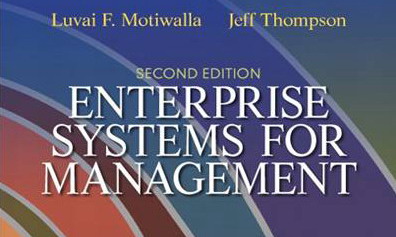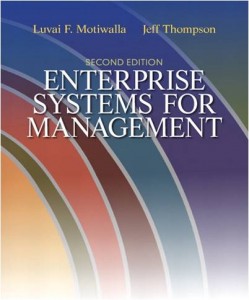Enterprise Systems for Management


Luvai F. Motiwalla, Jeff Thompson (2009), Enterprise Systems for Management, Pearson Prentice Hall
By Santo F.Wijaya
Enterprise System includes Enterprise Resource Planning (ERP), Supply Chain Mangement (SCM), Customer Resource Management (CRM) and other Enterprise level systems. This book describes the components of an ERP system and providers an introduction into the process of implementing a successful system in organizations. Enterprise Systems extend from the back end supply chain operations to front end customer facing service that extend beyond the boundaries of the enterprise, as such the implementation process is increasingly expensive, intense, and prone to failure than were traditional information system implementations
The goal of this book is to educate students on these issues and on the value that Enterprise Systems add to today’s companies. Students will learn how Enterprise Systems can remove structural and functional barriers to makes organizations more cross functional and productive. Students will also learn about Enterprise System’s technology and implementation life cycle and develop an understanding of the impact on processes and people in an organization. This book places major importance on the strategic role of ERP Systems in providing a platform for improved business operations and productivity.
In addition to students, this book would be helpful for professionals, top management, and such other participant subject matter experts who are involved in an enterprise systems implementation project. This book would be a good reference resource for terminology and a knowledge-base for launching enterprise systems. Top management will gain a perspective on strategies for implementing enterprise systems, resource requirements and providing an understanding on the need for organizational commitment for the enterprise systems project, make better decisions and interact better with the implementation team.
This book emphasizes both business and managerial aspects of Enterprise Systems from planning to post implementation, specifically:
– Provides several examples of real world companies issues that occurred while implementing Enterprise Systems
– Provides a step by step learning process for students using organized materials, learning about Enterprise System implementations
– Focuses on a pedagogy that lays out concise learning goals and reinforces the concepts learned using cases, discussion questions, and exercises
– Highlights issues within the implementation process that have implication for management

